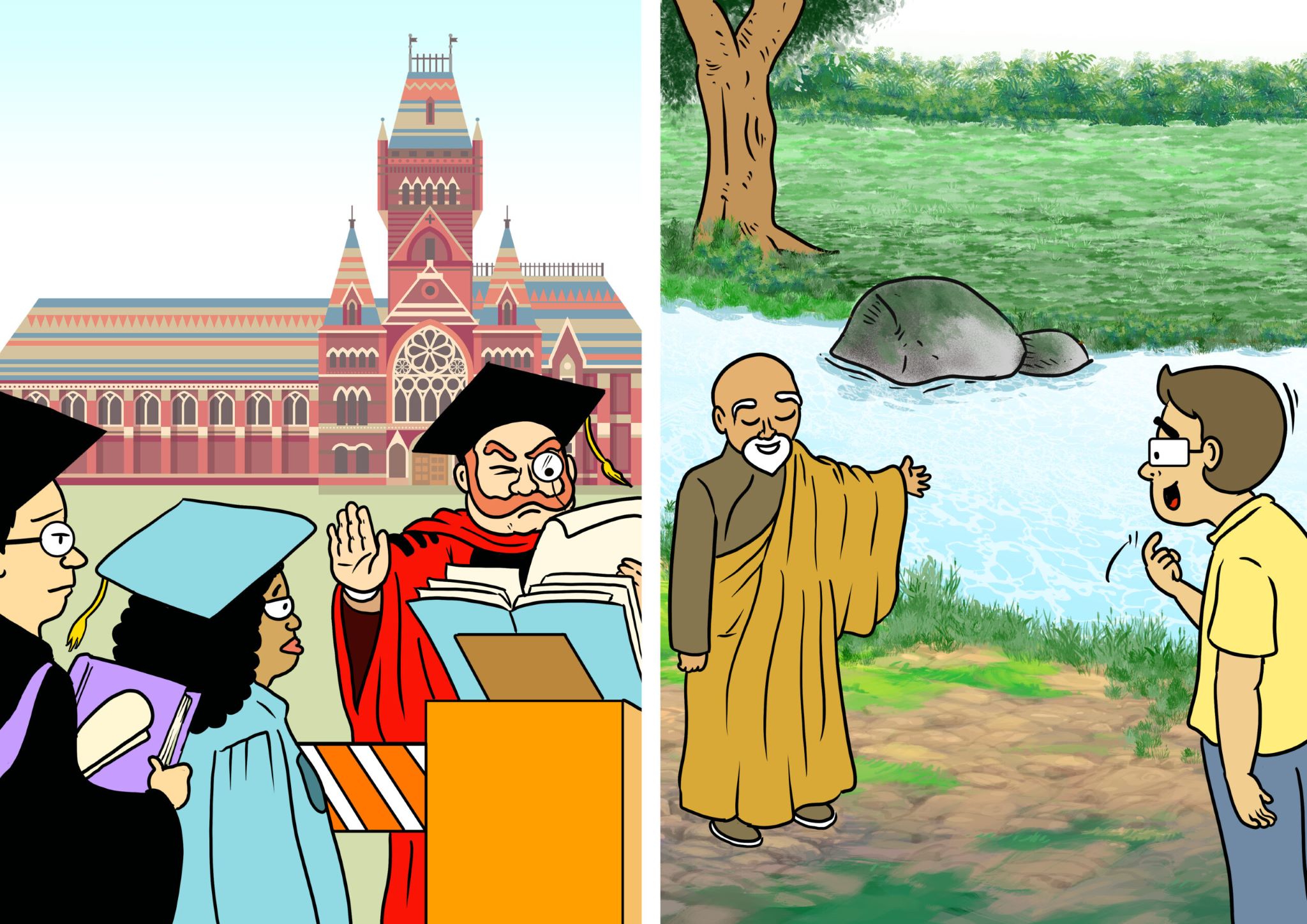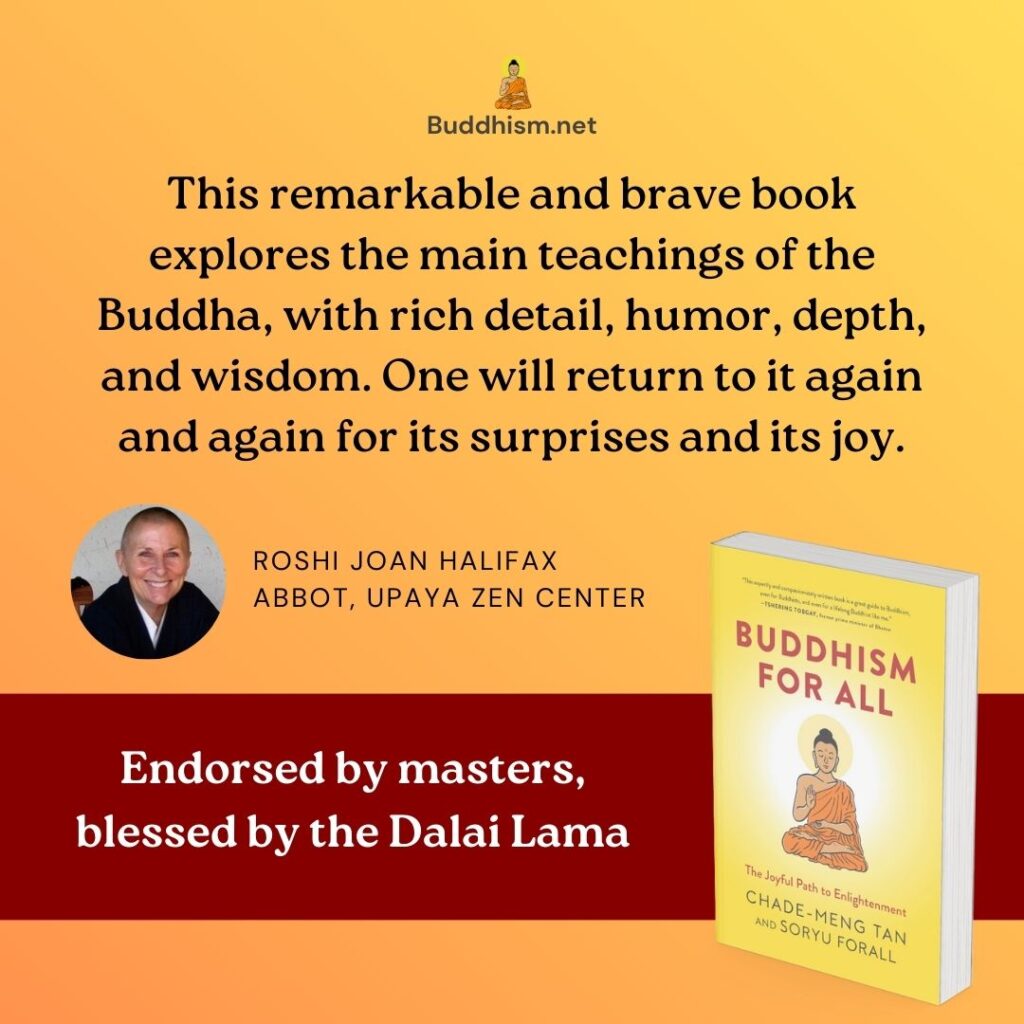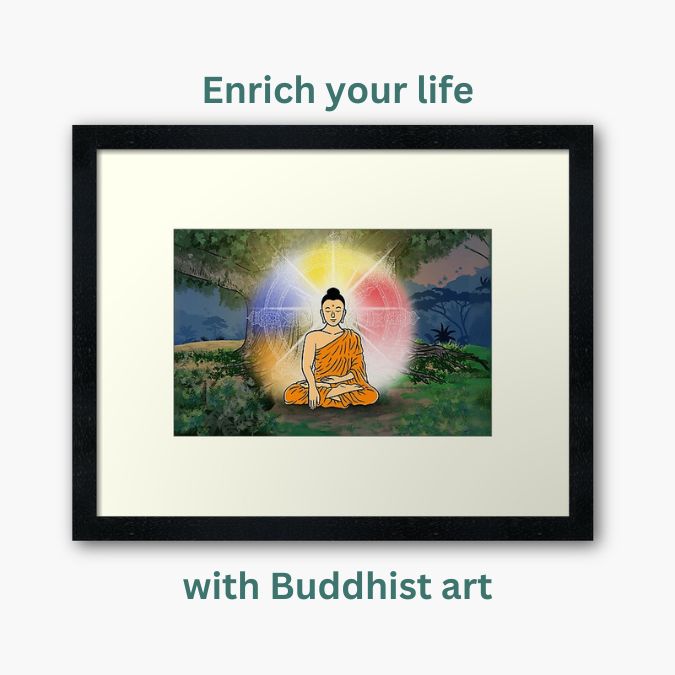We learned earlier that the Buddhist path to enlightenment is defined in four stages. It is no accident that the first stage is called stream-entry. Ancient Buddhist texts poetically compare the journey towards full enlightenment as a gentle flow from the stream into the river and then into the sea.[1] When one enters the stream, one will gently flow to the river and eventually to the sea of full enlightenment. That is why one who has entered the first stage of enlightenment is called a stream-enterer (sotāpanna).
Stream-entry may be the most important stage for somebody embarking on the journey towards enlightenment. The reason is very simple: there is no guarantee that you will actually get to stream-entry, but once you reach stream-entry, you are guaranteed to reach full enlightenment within seven more lifetimes, according to the Buddha. Hence, anybody who wants to embark on the path towards full enlightenment has only to worry about reaching stream-entry. It is a bit like getting a degree from Harvard (or the university of your choice). If you are not in Harvard but want a degree from Harvard, you don’t really have to worry about final year or third year coursework, you only have to worry about getting into Harvard. Once you are in, as long as you pass the exams, you are guaranteed to eventually earn your Harvard degree. Getting in is the key.
There is one important place where the Harvard analogy breaks down, and that is selectivity. Harvard is very selective, only about 5% of applicants are admitted each year. In contrast, stream-entry is not selective at all, 100% of all who want to join the club and who work hard enough to satisfy the entry criteria will be admitted. In that sense, it is more like becoming a marathoner. There is no limit to how many marathoners there are in the world, there is no admission committee to decide whether you can be called a marathoner or not; as long as you are sufficiently healthy and train hard enough to be able to run 26.219 miles, you are a marathoner. Yes, it is very challenging, yes, not everybody has the motivation, yes, there are people with pre-existing medical conditions who should not train without close medical supervision, but by and large, anybody can do it.
In the same way, stream-entry is very challenging, not everybody has the motivation, some people need more expert supervision than others, but it is within the grasp of anybody willing to do what is needed. And since stream-entry is within the grasp of everybody, then by extension, so is full enlightenment and total liberation from all suffering. That, I think, is the best news ever. Ever!

Stream-entry also has the additional benefit of significantly reducing suffering. Once, the Buddha took up a little bit of soil with his fingernail, and then told his disciples that before stream-entry, one’s suffering is comparable to the great earth while after stream-entry, one’s suffering is reduced to amount represented by the soil in the Buddha’s fingernail.[2] Whoa. To be fair, the Buddha probably took into consideration that the suffering of a stream-enterer is limited to a maximum of seven more lifetimes, while the suffering of a non-stream-enterer is unbounded, but still, whoa.
But wait, there’s more: stream-entry also benefits the people around the stream-enterer. That is because a stream-enterer abandons six types of defilements: denigration, domineering, envy, jealousy, hypocrisy, and fraud.[3] Imagine a world where all corporate and political leaders are stream-enterers: no more denigration, domination, hypocrisy and fraud! I think it is for all these reasons that the Buddha declares stream-entry as “far better than being in heaven, or ruling supreme over the entire universe.”[4] Whoa. That is why Soryu and I dream of creating a world where stream-entry is widely understandable, accessible and practicable to all.
Activities
- Reflect on this post with Angela:
- As the article says, we focus on getting into the stream, and it will bring us into the sea eventually. Trusting the laws of karma brings a light-hearted approach of non-grasping to our practice because we trust that effects will fruition in their own time. We just need to commit to the Noble Eightfold path, and karma will bring the ultimate fruition of complete enlightenment when causes and conditions suffice.
- Our unenlightened minds have the deep habitual tendencies to grasp, crave, cling and control. It is important to cultivate introspective awareness to know how these habits imprison us, and know the state of our mind – whether it is in a state of greed, anger, delusion, or in a state of non-greed, non-anger, and non-delusion. What insights, learning, or reflection came up for you from this article?
References
[1] Saṃyutta Nikāya 55.5 states that the stream-enterer enters the steam of the Noble Eightfold path (i.e., the practice). Saṃyutta Nikāya 55.38 compares the enlightenment process to rainwater flowing from creek to pool to stream to river and to ocean. Saṃyutta Nikāya 46.1 compares the enlightenment process to a mythical nāga going from pond to stream to river to ocean as it gets bigger and stronger.
[2] Saṃyutta Nikāya 56.51.
[3] This list comes from the commentary on Majjhima Nikāya 7, in the medieval text, Majjhima Nikāya Aṭṭhakathā.
[4] Dhammapada 178.
Artwork by Colin Goh


